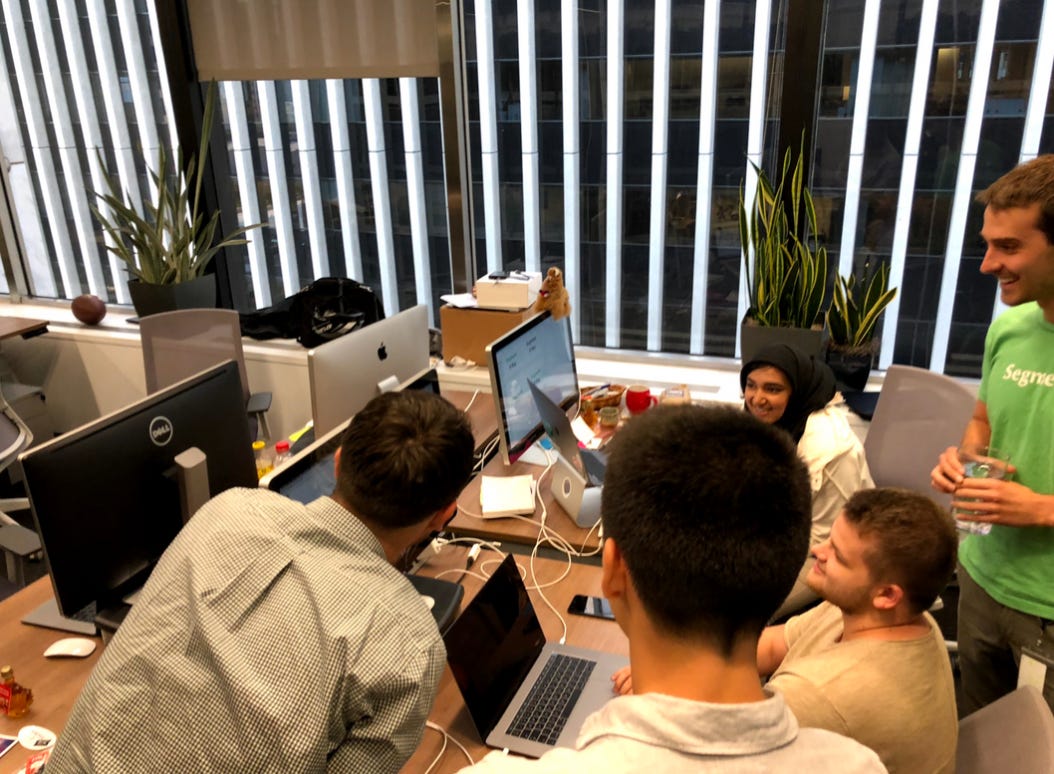Building a $3.2 billion product
I'm incredibly grateful to have spent the last 6 years building products Segment. This week we announced we're being acquired by Twilio for $3.2 billion
I'm incredibly grateful to have spent the last 6 years building products Segment. This week we announced we're being acquired by Twilio for $3.2 billion. Sharing a thread on some of the lessons and principles on how to build products customers love (and the amazing people I learned them from)
1/ solving customer problems > grand visions
The Segment founders (Peter, Ilya, Calvin & Ian) spent years building stuff people didn't want. The sustained failure early on created a product culture of "I will believe it when I see customers loving it"
We spent very little time on vision quests, and most of our time talking to customers
2/ your customers have already figured it out**
In 2014, Peter went on a now-legendary customer roadshow and found a bunch of forward-thinking customers were building ETL jobs to get event data into Redshift. A few months later, we introduced Warehouses so other teams didn't have to build this.
Almost all of our major product launches (Cloud Sources, Functions, Personas, Protocols, Data Lakes) were the productized versions of the things we saw customers (often reluctantly) hacking together. Many of our most advanced customers knew our roadmap long before we did.
3/ building the product is only half the battle**
Great products solve customers problems and are commercially viable. That means that product teams need to think about gross margin, positioning, pricing, how to demo, onboarding, incentives, financial targets for their products.
Personas and Protocols teams spent 6-12 months leading up to + after launch helping enable sales and support. This meant writing sales playbooks, collecting case studies, customer roadshows.
4/ when in doubt, bias to action**
You face a tremendous amount of product and strategy uncertainty early on. There are really only two types of product decisions:
(a) decisions where more data will lead to a materially better outcome
(b) decisions where additional data won't help
go get the data for (a) and make a decision quickly on (b)
5/ talk about the elephants 🐘
A fast-growing product/company is an emotional pendulum between "we might make it" and "we are so effed". It can be uncomfortable to identify a harsh reality (our pricing is broken, we don't have the right team) but Segment's culture helped
Diana Smith consistently and unabashedly made it cool to talk about the elephants in the room early on. A must-read from her here.
6/ great products are created by high-trust, high-context teams
Product, Eng, Design leads are collectively responsible for building high-performing teams. You need to share in the outcomes but everyone brings something different to the product process. There is nothing more powerful than an empowered team that trusts each other to do their best work.
7/ product abstractions matter
There is an invisible force called your "product model" that guides every decision you make. Your Product Model is really hard to change later because everything relies on it, from the names of the tables in your database to your marketing copy. You need to think deeply about your product model from the beginning.
Be deliberate about your product model from the beginning and forward-design where you want to go.
8/ TWMDW
Team work makes the dream work. There is no one person or moment that has defined Segment, but the collective work of hundreds of amazingly talented people. I'm proud of the products we've shipped but 100x more so of the team and friendships.
This was initially published as a tweetstorm here.




